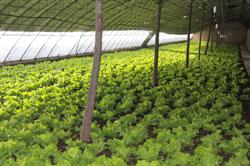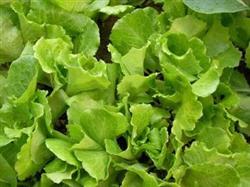High-yield cultivation techniques of spring onion
Spring onions are an essential side dish in our daily life, which can be used for seasoning, increasing flavor and effectively helping to appetizer. And whether it is large-scale planting to provide market sales, or family planting self-sufficient, there is a large planting area. But the onions planted by many friends are not only ugly in appearance, but also very low in yield, so how can they be planted to produce high yields? The following editor brings the high-yield cultivation techniques of spring onions.

1. Planting method
Consumers buy onions according to the length of onions and the upright degree of their growth, so we should lay a good foundation when planting to ensure the length and upright of onions. Make a good planting hole before planting, to ensure that when planting, the seedlings are planted upright, and remember that the seedlings should not be planted obliquely. And the planting depth should not be too shallow, if the planting depth is too shallow, the length of green onion will be very short, but it can not be planted too deep, because this will affect the emergence of seedlings. Reasonable control of planting density, although onions are relatively small, but also to ensure the permeability of the garden.
2. Rational watering
In the process of planting, watering should be carried out reasonably according to the growth rate, weather, soil and other factors. But it needs to be watered at several specific times. For example, during the change of season in summer and autumn, proper watering should be given to promote the growth and development of onion roots. If the weather is not too dry, we should reduce watering appropriately. If you encounter the rainy season, we should pay attention to the stagnant water in the vegetable garden, timely discharge, too much water will affect the root respiration, leading to retting roots. After entering the autumn, the water demand is reduced, you can properly pour some small water, Frosts Descent, as long as to ensure that the soil is moist.
3. Fertilization management
In the process of planting, the amount of nutrients will directly affect the growth of onions, and the growth of onions requires more nutrients. Especially in the prosperous period, this stage is the most critical time, if there is no guarantee of adequate nutrients, it will reduce the quality of green onions, such as length, hardness and so on. Topdressing mainly uses farm manure, not a single application or over application of a certain fertilizer, especially nitrogen fertilizer, the rational use of a variety of compound fertilizers in order to effectively promote growth. The two main times of topdressing are in the seedling growth period and the green onion flourishing period, these two stages should ensure the supply of fertilizer in order to promote the growth and high yield of onions.
4. Proper cultivation of soil
As mentioned earlier, the quality of green onions is mainly determined by green onions, but to improve the quality of green onions depends on soil cultivation. Soil cultivation should be carried out at least three times in the process of spring onion growth and development. the purpose of soil cultivation is to better soften the soil, enhance soil permeability and promote root respiration. It can not only effectively prevent the abnormal growth and lodging of onions, but also be beneficial to the growth of onions and increase the yield. But we must be careful not to let the soil cover the green and white when mixing the soil.
These are the high-yield cultivation techniques of planting onions, of course, we still need to pay attention to the prevention and control of diseases and insect pests in the planting process, after all, it is an aspect that we need to pay attention to. Strengthen the management of the vegetable garden, reduce the latent germs in the vegetable garden, and reduce the incidence. That's all for today's introduction of minor ailments. I hope you can get some inspiration in this article.
- Prev

Seedling raising of lettuce cultivated in greenhouse in winter
Selection of ① varieties: varieties with strong cold tolerance, disease resistance and adaptability, such as Emperor, Salinas, Dahu 659, etc., and fertile sandy loam with strong ability of water and fertilizer conservation should be selected in seedling bed. ② seedling bed preparation: because the lettuce seeds are small, the seedling bed farming requirements are strict, the soil preparation should be fine, and the bed soil should be fine and flat. Every 10.
- Next

Knowledge of cultivation techniques for growing lettuce outdoors in shed
Growers with greenhouses can cultivate leafy vegetables such as lettuce in the open space outside the shed, make full use of land resources and improve economic benefits. Lettuce also known as leaf lettuce, lettuce package, Qianjin vegetables, etc., should be able to eat raw and named. Any of several edible annual herbs of the genus lettuce (compositae) that form leaf bulbs or tender leaves. The leaves of lettuce...
Related
- Where is it suitable to grow horseradish in China? it is expected to see the middle altitude horseradish in Alishan.
- How to prevent tomato virus disease reasonably? (Control methods included)
- Many people like to plant towel gourd on the balcony. What are the main points of this method and management?
- What crops can chili peppers be mixed with?
- Fertilization techniques and matters needing attention in Tomato
- What are the grafting techniques for peach seedlings in spring?
- Harm and control methods of root swelling disease of Chinese cabbage
- What are the pests of sweet potatoes? How to prevent and cure it?
- Symptoms, causes and Control methods of navel Rot in Tomato
- The cause of "Cucumber rotten bibcock" in Farmers' planting Cucumber and its Control Plan

